Filter by
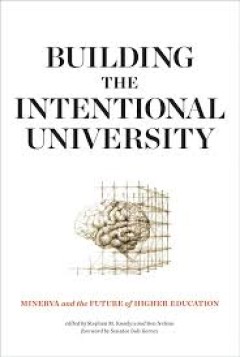
Building the intentional university :Minerva and the future of higher education
Includes index."We start with a simple question: If you could reinvent higher education for the 21st century, what should it look like? We began by taking a hard look at problems in traditional higher education, and innovated in many ways to address these problems head-on: We have created a new curriculum, focusing on what we call "practical knowledge"; we have developed new pedagogy, based on …
- Edition
- -
- ISBN/ISSN
- 9780262343695
- Collation
- 1 online resource
- Series Title
- -
- Call Number
- -
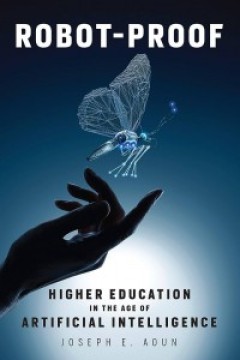
Robot-proof :higher education in the age of artificial intelligence
"How to educate the next generation of college students to invent, to create, and to discover--filling needs that even the most sophisticated robot cannot. Driverless cars are hitting the road, powered by artificial intelligence. Robots can climb stairs, open doors, win Jeopardy, analyze stocks, work in factories, find parking spaces, advise oncologists. In the past, automation was considered a…
- Edition
- -
- ISBN/ISSN
- 9780262344319
- Collation
- 1 online resource (xxi, 187 pages)
- Series Title
- -
- Call Number
- -

High-Performance Big Data Computing
"This book explores how to achieve high performance and scalability for big data middleware and applications"--OCLC-licensed vendor bibliographic record.
- Edition
- -
- ISBN/ISSN
- 9780262369435
- Collation
- 1 online resource
- Series Title
- -
- Call Number
- -
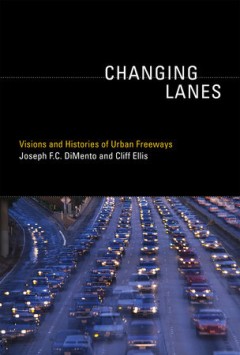
Changing lanes :visions and histories of urban freeways
The story of the evolution of the urban freeway, the competing visions that informed it, and the emerging alternatives for more sustainable urban transportation.Urban freeways often cut through the heart of a city, destroying neighborhoods, displacing residents, and reconfiguring street maps. These massive infrastructure projects, costing billions of dollars in transportation funds, have been s…
- Edition
- -
- ISBN/ISSN
- 0262312387
- Collation
- 1 online resource (xiii, 361 pages) :illustrations, maps.
- Series Title
- -
- Call Number
- -
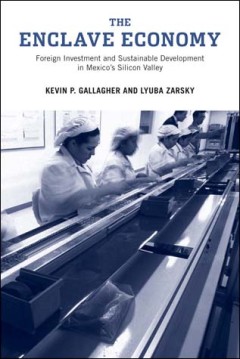
The enclave economy : Foreign Investment and Sustainable Development in Mexic…
Analyzes the extent to which foreign investment in Mexico's information technology sector brought economic, social, and environmental benefits to Guadalajara.Foreign investment has been widely perceived as a panacea for developing countries--as a way to reduce poverty and kick-start sustainable modern industries. The Enclave Economy calls this prescription into question, showing that Mexico's p…
- Edition
- -
- ISBN/ISSN
- -
- Collation
- 1 online resource (x, 214 pages) : illustrations, maps.
- Series Title
- -
- Call Number
- -
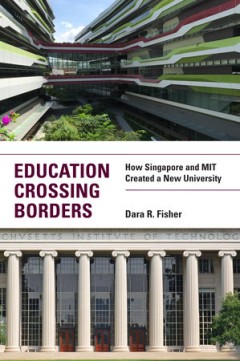
Education crossing borders :how Singapore and MIT created a new university
"The book chronicles the history of the collaborative partnership between MIT and the Singapore Ministry of Education to create the Singapore University of Technology and Design (SUTD), the country's fourth public university. Fisher describes how MIT faculty communicated the practices and identity of the Institute as they developed and executed the vision for SUTD, and how local actors at the u…
- Edition
- -
- ISBN/ISSN
- 0262358697
- Collation
- 1 online resource.
- Series Title
- -
- Call Number
- -
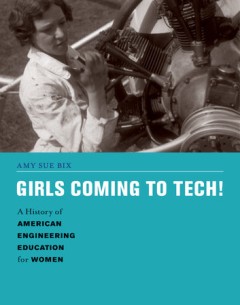
Girls coming to tech! :a history of American engineering education for women
"Engineering education in the United States was long regarded as masculine territory. For decades, women who studied or worked in engineering were popularly perceived as oddities, outcasts, unfeminine (or inappropriately feminine in a male world). In Girls Coming to Tech!, Amy Bix tells the story of how women gained entrance to the traditionally male field of engineering in American higher educ…
- Edition
- -
- ISBN/ISSN
- 9781461957249
- Collation
- 1 online resource (xii, 360 pages) :illustrations.
- Series Title
- -
- Call Number
- -
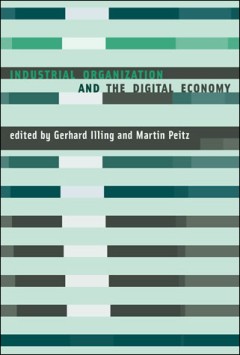
Industrial organization and the digital economy
Theoretical and factual studies of ways that the rapidly evolving digital economy has changed the structure of different industries, focusing on the software and music industries.OCLC-licensed vendor bibliographic record.
- Edition
- -
- ISBN/ISSN
- 9780262276009
- Collation
- 1 online resource (307 pages) : illustrations
- Series Title
- -
- Call Number
- 660 IND
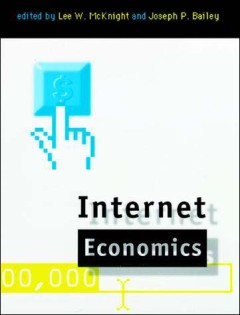
Internet Economics
The Internet has rapidly become an important element of the economic system. The lack of accepted metrics for economic analysis of Internet transactions is therefore increasingly problematic. This book, one of the first to bring together research on Internet engineering and economics, attempts to establish such metrics. The chapters, which developed out of a 1995 workshop held at MIT, include a…
- Edition
- -
- ISBN/ISSN
- 9780262279574
- Collation
- 1 online resource (529 pages)
- Series Title
- -
- Call Number
- 001 INT
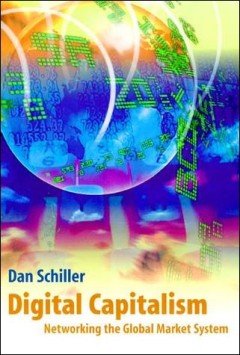
Digital capitalism: networking the global market system
Schiller traces the transformation of the Internet from government, military, and educational tool to agent of "digital capitalism" through three critically important and interlinked realms.The networks that comprise cyberspace were originally created at the behest of government agencies, military contractors, and allied educational institutions. Over the past generation or so, however, a growi…
- Edition
- -
- ISBN/ISSN
- 9780262283137
- Collation
- 1 online resource (xvii, 294 pages)
- Series Title
- -
- Call Number
- -
 Computer Science, Information & General Works
Computer Science, Information & General Works  Philosophy & Psychology
Philosophy & Psychology  Religion
Religion  Social Sciences
Social Sciences  Language
Language  Pure Science
Pure Science  Applied Sciences
Applied Sciences  Art & Recreation
Art & Recreation  Literature
Literature  History & Geography
History & Geography